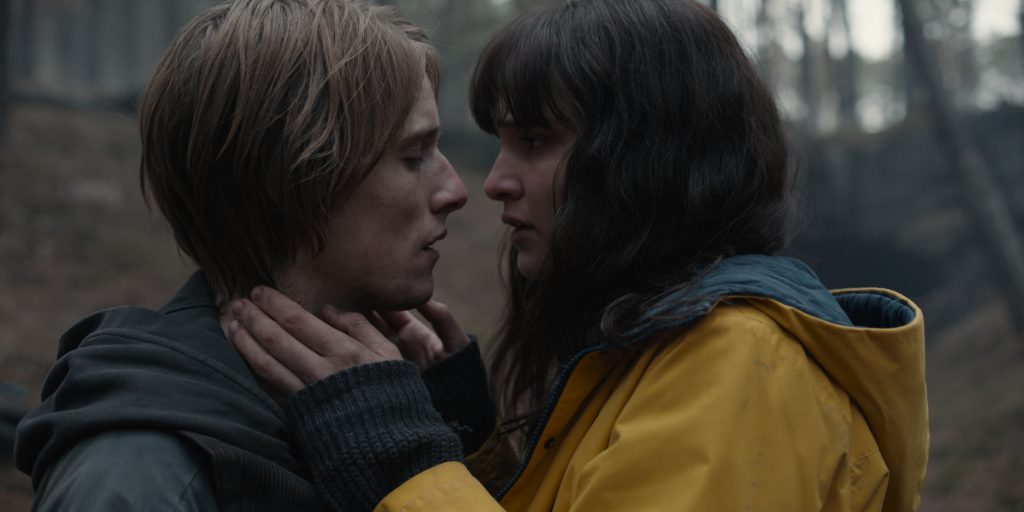With a strong fanbase, Dark showrunners Baran Bo Oder and Jantje Friese may have been tempted to stretch the show out as long as they could have. Thankfully, they chose to go out in good form, and the end result is a satisfying finale that wraps up the main plot threads in a sweeping, emotional send-off.
To recap the first two seasons: several families in the small town of Winden find themselves interlinked with a decade spanning plot by time travelers that are trying to make sure everything happens in the same way, all the way up to an apocalyptic explosion. Paradoxes abound, with characters finding out that their lover is their aunt and that they are their own grandmother.
The series picks up where it left off, exploring the concept of alternate worlds and their ramifications for it’s characters. Jonas (Louis Hoffman) gets involved with the alternate world’s Martha (Lisa Vicari) as the two try to find out how to save both of their worlds. Soon, it becomes apparent that both worlds are part of an infinite loop, that opposing factions are trying to maintain and destroy.
One of the most difficult aspects of Dark is how intricately everything is plotted, and how these proceedings can get hard to decipher, especially if the past two seasons aren’t fresh in your memory. The third season devotes a lot of time to explaining how the alternate world is both different and same to the first world, and how certain characters arrive at their end points and come to have certain motivations. At the last third, the season dives into the origins of these two worlds and puts into motion one last ditch effort to untie the knot of the infinite time loop.
As enamored as the show is with time travel and all its complications, it wouldn’t be complete without its cast of troubled characters. While not everyone gets fleshed out (Magnus doesn’t do much other than sleep with Franziska throughout all three seasons), it touches on enough of them to make you feel that almost everyone matters to the plot. While characters like Jonas and Martha at the center, it’s the flawed characters like Ulrich, Hannah and Claudia that makes the story feel layered and personal. Of the travelers, the main three orchestrators are all driven by love, even though they often engage in destructive acts.
Of course, there are moments when it seems that Dark may collapse under its own weight.
Characters go on philosophical monologues about the nature of time and the universe a bit too often, and Jonas and Martha become other people’s pawns a bit too easily, especially Jonas who has been led astray several times in the past. But the show recovers by the time its finale arrives, and ends on a hopeful note, despite wiping the slate clean to clear up the chaotic timelines.
What’s Dark’s greatest accomplishment is perhaps, the illusion that all of its plot threads and spiralling timelines fit into a cohesive loop. Certain items pass from character to character across dozens, even hundreds, of years. Events repeat across worlds, often displayed in split screens. And then, just when you expect Jonas and Martha to fail one last time, they miraculously succeed.
‘Was it all a dream?’ Martha asks Jonas as they stand in the rain, coming to terms with their doomed fates. Jonas grasps her hand, looking around him as reality rearranges itself. “We are a perfect match,” he says, echoing the first season. “Never believe anything else.”
Dark doesn’t provide any profound revelations at the end, because at its heart, it’s about flawed people trying to protect the ones they love.
It’s however, an impressive magic act of a series, and its curtain call cements its place as a sci-fi classic. It’s not an easy show to get into, but the third season rewards those who stuck through to the end.
